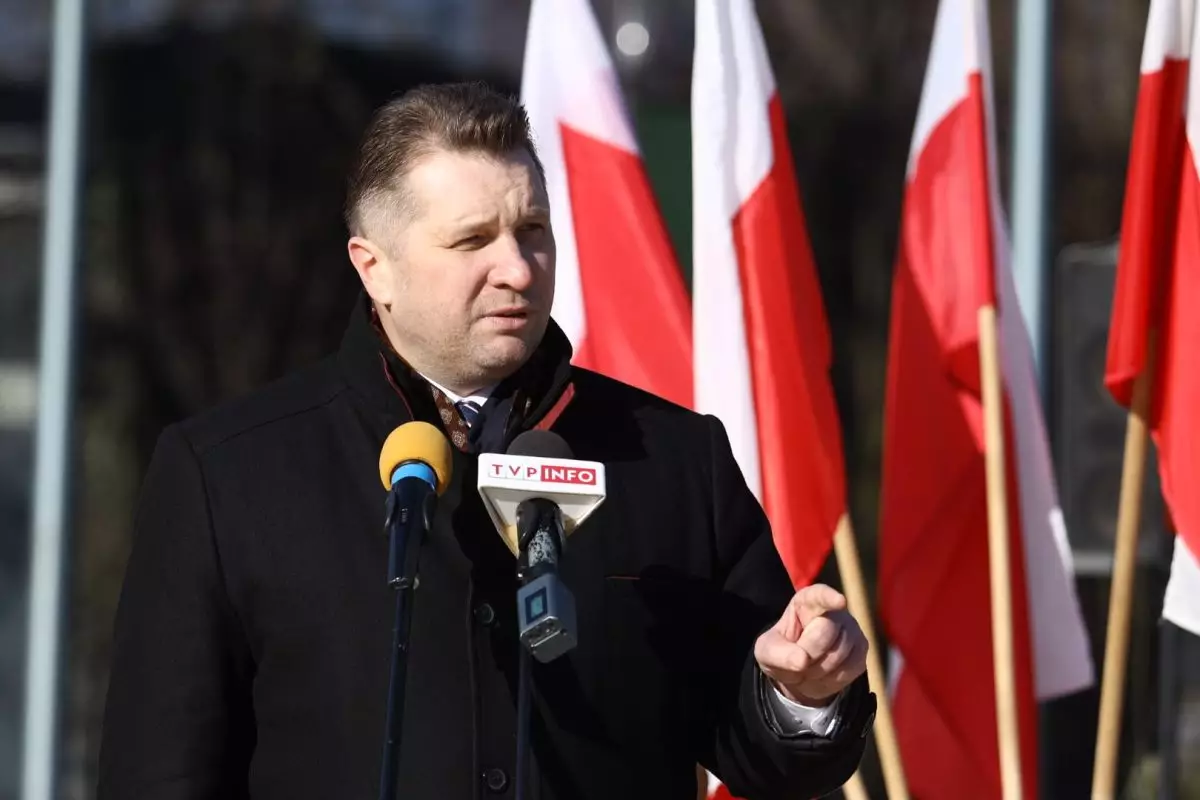Poland – A new law has just been passed by the Polish parliament to allow the authorities to expel the LGBT lobby and gender ideologues from the country’s schools. Dubbed “Lex Czarnek” in reference to its initiator, Education Minister Przemysław Czarnek, the law is now on the desk of President Andrzej Duda, who has until 3 March to sign it. The left and liberals, as well as the LGBT lobby, are still hoping for a rather unlikely presidential veto, unless the president decides to introduce his own bill if he feels that the one just passed should be improved. In his campaign platform for re-election in 2020, Duda promised in a “family charter” to protect children from indoctrination into LGBT ideology, which he compared to Bolshevism. Among the proposals contained in the Family Charter signed by Andrzej Duda in 2020, there was a ban on the propagation of LGBT ideology in public institutions, the right of parents to decide on the education of their children in accordance with their own beliefs, and new provisions for home education.
The Sejm voted the education minister’s bill into law on 9 February despite its rejection by the Senate, where PiS and its allies are in the minority. In Poland, the lower house of parliament has the final say in case of disagreement.
The main change to the Education Act made by “Lex Czarnek” concerns the power given to the chief education officer in each province (the kurator oświaty) to issue recommendations to school principals and to have a principal removed from office if he or she fails to implement those recommendations. At the same time, this power is taken away from the mayors of the municipalities that manage the schools, since they will now have to obtain the agreement of their province’s chief education officer in order to dismiss a school principal during the school year. Chief education officers will also have more influence over the appointment of school principals, and will have increased powers to inspect schools and also to supervise additional events and courses organised by schools. School principals will be required to obtain detailed information about the workshops and courses conducted in their schools by outside contributors, and a copy of the authorisation request sent to them by the organising NGO will have to be sent to the chief education officer.
This will allow the Ministry of Education to counter the policy conducted by some liberal-led cities, such as Warsaw and Gdańsk, of bringing activists from LGBT associations into schools and implementing sex education in line with the highly controversial WHO standards for sex education in Europe. Those standards advocate encouraging children to masturbate as early as in nursery schools, and promoting, throughout the course of education, abortion and all types of sexualities and sexual identities.
The new law is naturally criticised by those who would like to impose these standards and the organisation of workshops by LGBT associations, whose objectives are not always clearly stated, since LGBT-style sex education workshops are often presented as workshops against discrimination. The core of the criticism concerns the over-centralisation of education management, which is said by opponents of the law to impinge on the autonomy of local communities and schools and on the ability of parents to influence the content of the education provided to their children.
While the criticism coming from the left and the Civic Platform liberals should come as no surprise (they are the ones who govern in Warsaw and Gdańsk, among other places), it should be noted that even the Confederation (Konfederacja, an alliance of nationalist and libertarian liberal-conservatives), to the right of PiS, voted against it. Politicians belonging to this right-wing opposition group, which is more conservative than PiS in societal matters and more radically hostile to the indoctrination of children by the LGBT lobby and its allies, criticise the new law for establishing an excessively centralised decision-making system, which could backfire if the liberals ever return to power, and also for PiS’ rejection of an amendment that would have given parents more influence over the appointment of school principals. “Once centralised, this system will serve subsequent governments, and unfortunately we have no certainty about the nature of these governments”, nationalist leader Robert Winnicki warned during the parliamentary debates, while his libertarian college, Artur Dziambor (a teacher by profession), asked: “Would you want this power that you are handing to your education minister to fall into the hands of a representative of the left one day? Because I wouldn’t want that!”
At the same time, speaking on the public radio station Polskie Radio 24, Paweł Lisicki, editor-in-chief of the liberal-conservative weekly Do Rzeczy (see his recent editorial “Macron and the Polish Illusions” which we have translated and published), often highly critical of PiS policies, recently came to the defence of the new law.
“If we put aside all the rhetoric and accusations and look at how the educational system in Western Europe has undergone such a massive moral revolution, the key to the success of that revolution has been the control of the educational system and schools by leftist forces”, he explained.
According to Lisicki, if it came back to power, the left would not hesitate to adopt a similar law anyway. It may not be necessary, however, as “the problem is that the changes in Western Europe have taken place precisely because the educational system has been increasingly infiltrated by organisations, financed by public or EU funds, which have begun to promote a new way of learning and a new way of understanding one’s sexuality and identity”.
In order to help parents, who are generally powerless against such infiltration of schools, which is now happening in Poland too, including with the active support of Brussels, Lisicki therefore believes that state intervention is more necessary than ever.
Did you like it? 4.6/5 (23)







Isn’t this law infringing on personal freedoms? 🤔
Wow, another attempt to control education. What’s next?
As a parent, I appreciate the effort to keep ideologies out of schools. Thank you, Poland! 🇵🇱
Is it really necessary to have such centralised control over schools? Seems excessive.
I’m curious if this will actually change anything in schools. Anyone knows? 🤷♂️
This feels like a step backward for human rights. 😢
How do they define ‘LGBT indoctrination’? Sounds very vague.
Thank goodness for this law! Protect our kids! 🙌